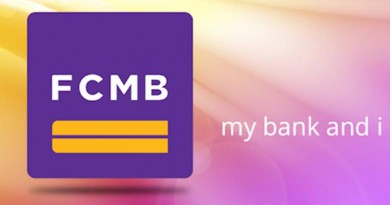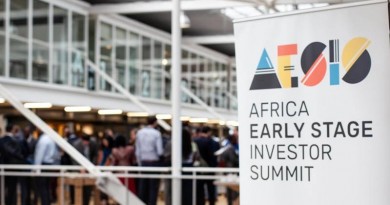Nigerian fintechs IGUGU GLOBAL, AWABAH and CROP2CASH among 14 startups selected for Catapult: Inclusion Africa 2021 fintech bootcamp by Agwu, C. J.
Nigerian fintech startups Igugu Global, Awabah and Crop2cash are among the 14 Fintech start-ups selected to take part in the 2021 edition of CATAPULT: Inclusion Africa fintech bootcamp.
Through the program, selected companies will benefit from intensive mentoring, coaching, peer to peer learning and dedicated workshops. This will be through various sessions which include; business model mapping, investment readiness, funding, and capital raising, social impact, scaling strategy, building teams, operational management, advisory meetings with investors, and pitch development.
Developed by the Luxembourg House of Financial Technology (LHoFT) Foundation, the program now in its third edition targets companies focusing on financial inclusion in Africa, aiming to build bridges between Africa and Europe; and concurrently, highlighting their initiatives that are very much aligned with the sustainability goals of Luxembourg’s finance centre.
Igugu Global is accelerating the flow of capital to Africa’s US$1.5 trillion sustainable infrastructure gap. We are solving the problem of fragmentation in financial markets by providing ESG mapping, structuring and due diligence for green building, transport and energy portfolios
Awabah provides access to retirement savings for Africa’s unbanked and underbanked population. The startup is improving the customer experience when interacting with pensions by merging financial literacy with easy to use technology.
Banks and Development Finance Institutions (DFIs) find agricultural financing risky, which has created a $330 billion funding gap in agriculture globally. With Cash2Crop tools, they can provide this finance with a high level of assurance that it would be efficiently used by the farmers.
Sponsors for the program include the Ministry of Foreign & European Affairs – Directorate for Development and Humanitarian Affairs, and supported by the Alliance for Financial Inclusion as well as key strategic partners such as ADA, InFine, University of Luxembourg, LuxFlag, Innpact, LuxAfrica, ACRC, MicroInsurance Network, CGAP, LMDF, SPTF, UABA, the European Investment Bank and Compellio.
The 2021 program will end on Thursday, May 27 with a digital pitching event open to the public, where the participating companies will showcase their innovations.
The other 11 Startus are
EMATA
(Uganda) Emata is disrupting the $65bn agricultural financing opportunity in Africa. The company digitizes farmers’ cooperatives and gives farmers access to digital and affordable financial products.
MOJA BANK
(Ivory Coast) Moja Bank provides a digital payment App and a contactless card which is used by consumers to facilitate everyday payment in emerging markets. Consumers in the US use the App to manage their finances, and send money to their families back home.
MOSABI
(Sierra Leone) Mosabi links fintech and edtech with embedded, gamified upskilling for Africa’s financial products and platforms. This helps underserved citizens improve decisions and behaviours on their businesses and money. The startup harnesses data insights from user profiles and journeys, to match them to best fits across a marketplace of digital financial services.
MIPANGO
(Tanzania) Mipango is a personal finance mobile application that enables users to manage their income, expenses, savings, financial targets, help and offerings. Mipango app uses artificial intelligence to guide users to better financial management and financial deals towards attaining financial freedom.
CHROMEPAY
(Israel) Chromepay provides merchants and vendors with an affordable way to run all financial aspects of their business without using a bank or POS system. Our platform allows each merchant to manage products and generate invoices embedded in a unique QR code that can be scanned by customers to instantly pay for goods and services.
NOKWARY TECHNOLOGIES
(Ghana) Nokwary Technologies are excited about the potential of AI in the financial space, and its capacity to promote financial inclusion. Voice User Interface systems, for instance, enable people who cannot see, as well as people who cannot read and write, to interact with banking apps and systems through spoken commands.
KOTANI PAY
(Kenya) Kotani Pay is a technology stack that enables Blockchain protocols, dApps, and Blockchain FinTech companies to integrate seamlessly into local payment channels providing them with a reliable on-ramp and off-ramp service to reach a wider customer base in Africa.
JUAKALI
(France) At Juakali, we simplify financial institutions’ lives by eliminating paperwork & automating valueless tasks, so that employees can make the most of their time at work and companies boost their productivity.
REPAY.AFRICA
(Kenya) RePay Africa’s API driven platform serves as an electronic alternative to cash, cheques & banks for the un-banked Sub-Saharan Africa. Africa-wide payment & transfer platform that supports online money transfers and bill payments to merchants.
ASILIMIA FRANCE
(France) Asilimia is an android application that allows informal traders in Africa to create a formal business account within their personal mobile money account. With Asilimia, all their future B2B transactions will be categorized as business transactions even though initiated from their personal mobile money account, saving 90% of their mobile money transaction fees.
VOOLI INSURTECH
(Kenya) Vooli is a client-centric, technology-driven, disruptive insurtech, that offers on-demand general insurance through its app and website. Vooli bills users based on the duration they need insurance e.g. annually or semi-annually, and also seamlessly.
As Franz Fayot, Minister of the Economy and Minister for Development Cooperation and Humanitarian Affairs, states: “Innovative Fintech solutions have the potential to lead to an improved accessibility of inclusive financial services, especially in isolated areas, and to reduce costs for clients of financial service providers. Digitalisation can at the same time simplify the access to knowledge, education, and the labour market, as well as improve communication. The Luxembourgish civil society and private sectors have developed a wide array of expertise in microfinance and in Fintech, which can, through CATAPULT, be put at the benefit of young fintech entrepreneurs in Africa.”
While most of the world has been running in second gear since March 2020 and projections by the World Economic Forum expect African economies to contract by 4.4% this year, African Fintech is taking off like never before. Indeed, even in 2020 already, VC funding for African Fintechs increased by an astonishing 51%. During the first quarter alone they raised more than $350 million.
Other than the 14 startups that will be joining and pitching in the online event, a host of distinguished jury and investors will also be present. Special guest, Mr. Kosta Peric, Deputy Director for the Financial Services for the Poor initiative at the Bill & Melinda Gates Foundation, will also attend the online pitching event on the closing day and give a small opening speech.




